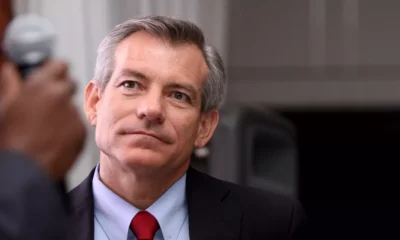Business
Trump’s Executive Order Seeks to Cut Prescription Costs in Line with Global Prices

President Donald Trump signed a significant executive order on Monday aimed at reducing prescription drug prices in the United States. The order pressures pharmaceutical companies to align their pricing structures with those in comparable wealthy nations.
During a White House event, Trump asserted, “We’ll slash the cost of prescription drugs and will bring fairness to America.” He emphasized his goal of equal pricing for all Americans.
The newly introduced “most-favored-nation” policy requires pharmaceutical companies to negotiate lower prices with the government within 30 days. If no agreement is reached, a new rule will be established to ensure U.S. prices reflect the lower rates available in other countries. The rulemaking will fall under the responsibility of Health and Human Services Secretary Robert F. Kennedy Jr., as detailed in the executive order.
The discrepancy in pricing is stark, with U.S. patients paying over four times more for brand-name drugs compared to those in similarly developed countries, according to a 2024 RAND study.
A White House official indicated that the Department of Commerce will take necessary actions against countries that keep their drug prices artificially low. Additionally, the FDA is expected to expand the importation of drugs from nations beyond Canada.
Former President Joe Biden had previously initiated measures to foster the importation of prescription drugs from Canada. The White House emphasized that Kennedy will establish clear targets for price reductions across all U.S. markets.
At the event, Kennedy declared, “The United States will no longer subsidize the health care of foreign countries.” He described potential savings from raised European drug prices as a source of funding for innovation and global healthcare.
Trump plans to integrate this drug pricing policy into a broader reconciliation bill that congressional Republicans prioritize, also addressing tax cuts and border security funding. However, staff from the House Energy and Commerce Committee conveyed that the most-favored-nation pricing will not be included in this reconciliation package.
This executive order builds on a similar effort from Trump’s first term, which faced legal challenges. Officials noted that this initiative expands upon earlier attempts that targeted Medicare pricing for 50 drugs.
Despite Trump’s assertions, the pharmaceutical industry remains staunchly opposed to these measures and is preparing for potential tariffs on their products. The White House also hinted at forthcoming actions affecting Medicare if pharmaceutical companies do not engage in negotiations.
Senate Finance Committee ranking member Ron Wyden criticized the executive order, arguing that true progress would come from collaborating with Congress to enhance Medicare’s negotiating power. He pointed to the Inflation Reduction Act, passed in 2022, as a comprehensive approach that provides Medicare with the authority to negotiate lower prices for seniors.
This is a completely advertising post.


















